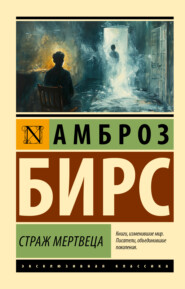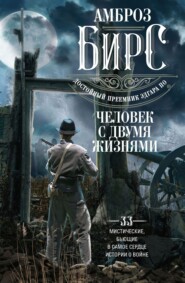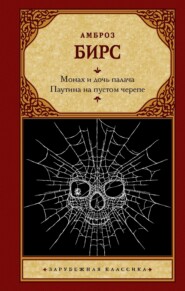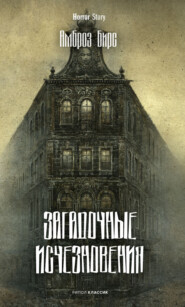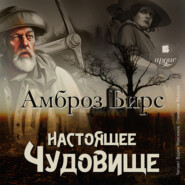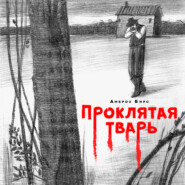По всем вопросам обращайтесь на: info@litportal.ru
(©) 2003-2025.
✖
The Letters of Ambrose Bierce, With a Memoir by George Sterling
Настройки чтения
Размер шрифта
Высота строк
Поля
"The dome of the Capitol roars
With the shouts of the Caesars of crime"
is great poetry, but it is not true. I am rather familiar with what goes on in the Capitol – not through the muck-rakers, who pass a few days here "investigating," and then look into their pockets and write, but through years of personal observation and personal acquaintance with the men observed. There are no Caesars of crime, but about a dozen rascals, all told, mostly very small fellows; I can name them all. They are without power or influence enough to count in the scheme of legislation. The really dangerous and mischievous chaps are the demagogues, friends of the pee-pul. And they do all the "shouting." Compared with the Congress of our forefathers, the Congress of to-day is as a flock of angels to an executive body of the Western Federation of Miners.
When I showed the "dome" to * * * (who had been reading his own magazine) the tears came into his voice, and I guess his eyes, as he lamented the decay of civic virtue, "the treason of the Senate," and the rest of it. He was so affected that I hastened to brace him up with whiskey. He, too, was "squirming" about "other persons' troubles," and with about as good reason as you.
I think "the present system" is not "frightful." It is all right – a natural outgrowth of human needs, limitations and capacities, instinct with possibilities of growth in goodness, elastic, and progressively better. Why don't you study humanity as you do the suns – not from the viewpoint of time, but from that of eternity. The middle ages were yesterday, Rome and Greece the day before. The individual man is nothing, as a single star is nothing. If this earth were to take fire you would smile to think how little it mattered in the scheme of the universe; all the wailing of the egoist mob would not affect you. Then why do you squirm at the minute catastrophe of a few thousands or millions of pismires crushed under the wheels of evolution. Must the new heavens and the new earth of prophecy and science come in your little instant of life in order that you may not go howling and damning with Jack London up and down the earth that we happen to have? Nay, nay, read history to get the long, large view – to learn to think in centuries and cycles. Keep your eyes off your neighbors and fix them on the nations. What poetry we shall have when you get, and give us, The Testimony of the Races!
* * *
I peg away at compilation and revision. I'm cutting-about my stuff a good deal – changing things from one book to another, adding, subtracting and dividing. Five volumes are ready, and Neale is engaged in a "prospectus" which he says will make me blush. I'll send it to you when he has it ready.
Gertrude Atherton is sending me picture-postals of Berchtesgaden and other scenes of "The Monk and the Hangman's Daughter." She found all the places "exactly as described" – the lakes, mountains, St. Bartolomae, the cliff-meadow where the edelweiss grows, and so forth. The photographs are naturally very interesting to me.
Good night. Ambrose Bierce.
Army and Navy Club,
Washington, D. C.,
September 12,
1908.
My dear Mr. Cahill,
Thank you for your good wishes for the "Collected Works" – an advertisement of which – with many blushes! – I enclose.
Sincerely yours, Ambrose Bierce.
P.S. – The "ad" is not sent in the hope that you will be so foolish as to subscribe – merely to "show" you. The "edition de luxe" business is not at all to my taste – I should prefer a popular edition at a possible price.
New York,
November 6,
1908.
Dear George,
Your letter has just been forwarded from Washington. I'm here for a few days only – "few days and full of trouble," as the Scripture hath it. The "trouble" is mainly owling, dining and booze. I'll not attempt an answer to your letter till I get home.
* * *
I'm going to read Hopper's book, and if it doesn't show him to be a * * * or a * * * I'll call on him. If it does I won't. I'm getting pretty particular in my old age; the muck-rakers, blood-boilers and little brothers-of-the-bad are not congenial.
By the way, why do you speak of my "caning" you. I did not suppose that you had joined the innumerable caravan of those who find something sarcastic or malicious in my good natured raillery in careless controversy. If I choose to smile in ink at your inconsistency in weeping for the woes of individual "others" – meaning other humans– while you, of course, don't give a damn for the thousands of lives that you crush out every time you set down your foot, or eat a berry, why shouldn't I do so? One can't always remember to stick to trifles, even in writing a letter. Put on your skin, old man, I may want to poke about with my finger again.
* * *
Sincerely yours, Ambrose Bierce.
Washington, D. C.,
December 11,
1908.
Dear George,
* * *
I'm still working at my book. Seven volumes are completed and I've read the proofs of Vol. I.
Your account of the "movement" to free the oppressed and downtrodden river from the tyranny of the sand-bar tickled me in my lonesome rib. Surely no colony of reformers ever engaged in a more characteristic crusade against the Established Order and Intolerable Conditions. I can almost hear you patting yourselves on your aching backs as you contemplated your encouraging success in beating Nature and promoting the Cause. I believe that if I'd been there my cold heart and indurated mind would have caught the contagion of the Great Reform. Anyhow, I should have appreciated the sunset which (characteristically) intervened in the interest of Things as They Are. I feel sure that whenever you Socialers shall have found a way to make the earth stop "turning over and over like a man in bed" (as Joaquin might say) you will accomplish all the reforms that you have at heart. All that you need is plenty of time – a few kalpas, more or less, of uninterrupted daylight. Meantime I await your new book with impatience and expectation.
I have photographs of my brother's shack in the redwoods and feel strongly drawn in that direction – since, as you fully infer, Carmel is barred. Probably, though, I shall continue in the complicated life of cities while I last.
Sincerely yours, Ambrose Bierce.
Washington, D. C.,
January 9,
1909.
Dear George,
I've been reading your book – re-reading most of it – "every little while." I don't know that it is better than your first, but to say that it is as good is praise enough. You know what I like most in it, but there are some things that you don't know I like. For an example, "Night in Heaven." It Kipples a bit, but it is great. But I'm not going to bore you with a catalogue of titles. The book is all good. No, not (in my judgment) all, for it contains lines and words that I found objectionable in the manuscript, and time has not reconciled me to them. Your retention of them, shows, however, that you agree with me in thinking that you have passed your 'prentice period and need no further criticism. So I welcome them.
I take it that the cover design is Scheff's – perhaps because it is so good, for the little cuss is clever that way.
* * *
I rather like your defence of Jack London – not that I think it valid, but because I like loyalty to a friend whom one does not believe to be bad. (The "thick-and-thin" loyalty never commended itself to me; it is too dog-like.) I fail, however, to catch the note of penitence in London's narratives of his underlife, and my charge of literary stealing was not based on his primeval man book, "Before Adam."
As to * * *, as he is not more than a long-range or short-acquaintance friend of yours, I'll say that I would not believe him under oath on his deathbed. * * * The truth is, none of these howlers knows the difference between a million and a thousand nor between truth and falsehood. I could give you instances of their lying about matters here at the capital that would make even your hair stand on end. It is not only that they are all liars – they are mere children; they don't know anything and don't care to, nor, for prosperity in their specialties, need to. Veracity would be a disqualification; if they confined themselves to facts they would not get a hearing. * * * is the nastiest futilitarian of the gang.
It is not the purpose of these gentlemen that I find so very objectionable, but the foul means that they employ to accomplish it. I would be a good deal of a Socialist myself if they had not made the word (and the thing) stink.
Don't imagine that I'll not "enter Carmel" if I come out there. I'll visit you till you're sick of me. But I'd not live there and be "identified" with it, as the newspapers would say. I'm warned by Hawthorne and Brook Farm.
I'm still working – a little more leisurely – on my books. But I begin to feel the call of New York on the tympani of my blood globules. I must go there occasionally, or I should die of intellectual torpor. * * * "O Lord how long?" – this letter. O well, you need not give it the slightest attention; there's nothing, I think, that requires a reply, nor merits one.
Sincerely yours, Ambrose Bierce.
Washington, D. C.,
March 6,
1909.
Dear George,
* * *
Did you see Markham's review of the "Wine" in "The N. Y. American"? Pretty fair, but – if a metrical composition full of poetry is not a poem what is it? And I wonder what he calls Kubla Khan, which has a beginning but neither middle nor end. And how about The Faerie Queene for absence of "unity"? Guess I'll ask him.
Isn't it funny what happens to critics who would mark out meters and bounds for the Muse – denying the name "poem," for example, to a work because it is not like some other work, or like one that is in the minds of them?






